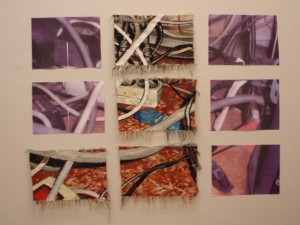Writing and Computing: On occasion of Vilém Flusser’s birthday
Wednesday, May 12th, 2010Vilém Flusser’s (12.5.1920-27.11.1991) theoretical work is an example of the critical understanding of the dominant role of writing in western society. On the other hand he serves as a counterexample: Flusser substitutes the domination of writing by the dominance of computing. He replaces one medium on the top of the hierarchy of communication by another one. His work integrates aspects of modern nomadism with the theory and history of exact sciences. As a writer he felt challenged by the impact of computer technology on text production. On the one hand Flusser argues that computer culture will dominate all aspects of civilized life, on the other hand he strengthens the position that this domination has to be counterbalanced by inter-subjective values. One part of his thinking is a prophecy, saying that exact sciences and their major tool – the computer – will overwhelm the culture of writing. He regards computer processed mathematical functions as far more sufficient in describing phenomena than writing. Therefore the art of bookmaking and of authorship will die. On the other hand thinking and philosophy will survive when the computer is used dialogically. Flusser believes that the computer on the one hand will help to establish a technocracy of scientists, a new authority, but on the other hand it can be used to set up intersubjective relations and to overcome the authority of monological narrators. Flusser points out the communicational and mediational potentials of the computer. We see Vilém Flusser engaged in a conflict between the traditional communication of writing and the event of computer based communication. Problematic is Flussers impetus to establish the sovereignty of the computer. He reorganizes written history under the effect of a technological revolution, and establishes by himself a historical order, leading directly to the advent of the computer, which he regards as a tool to establish a new technocracy. Often he writes that the remaining time in which to fight and avoid this technocracy is short.*
On occasion of Flusser’s birthday we post “Serie Flusser” from Darya Berner.
* Extract from Nils Röller: „Hierarchies of Communication“. In: Diebner, Hans and Ramsay, Lehan (eds.): Hierarchies of Communication. Karlsruhe: ZKM, 2003.

